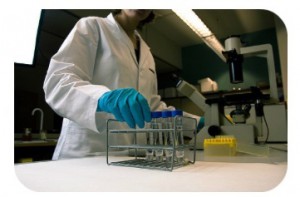 According to estimates from the U.N., by 2050 the global food industry will need to produce 455 million tons of meat annually in order to keep up with demand. Today’s meat makers already produce 259 tons per year, leaving behind an enormous environmental impact in the process. More than 70 percent of the world’s water consumption comes from meat and dairy production along with 38 percent of land use and 19 percent of global greenhouse gas emissions. Environmentalists fear that producing an additional 200 tons of meat annually would be even more unsustainable for the planet.
According to estimates from the U.N., by 2050 the global food industry will need to produce 455 million tons of meat annually in order to keep up with demand. Today’s meat makers already produce 259 tons per year, leaving behind an enormous environmental impact in the process. More than 70 percent of the world’s water consumption comes from meat and dairy production along with 38 percent of land use and 19 percent of global greenhouse gas emissions. Environmentalists fear that producing an additional 200 tons of meat annually would be even more unsustainable for the planet.
Given these circumstances, people will likely end up consuming less meat as the years go on. Instead, consumers may switch to lab-grown meat alternatives that look and taste like the real thing. The concept of “meatless meat” has been around for a while but has only recently developed into a commercially viable enterprise. For instance, a few years ago a team of scientists spent $330,000 to create a burger patty grown from cow stem cells and “bovine serum.” Soon after their success the researchers formed a company called Mosa Meats that now sells this groundbreaking burger for $30 per pound.
While this huge drop in cost is undoubtedly impressive, “cultured” meats like Mosa’s are still prohibitively expensive for much of the public. These companies have also come into conflict with food makers who don’t want lab-created items to use the same names as traditional foods. The dairy industry, for example, has contended for years that only animal-based milk should be labelled as “milk.” As the cultured meat industry grows, it’s likely that beef and pork producers will object to any lab-grown items that say “meat” on their packaging. What’s more, this dispute isn’t limited solely to the U.S. If cultured meat makers truly want to make a global impact, they must convince consumers and companies throughout the world about their products. To accomplish this task, a group of scientists and businesspeople formed the Good Food Institute to lobby in support of meat alternatives domestically and in countries like China and Brazil.
Questions:
- Do you think consumers will someday eat more lab-grown meat alternatives than actual meat?
- What are the objections that traditional food companies have with “alternative” items like cultured meat?
Sources: Bahar Gholipour, “Lab-Grown Meat May Save a Lot More than Farm Animals’ Lives,” NBC News, April 6, 2017; Chase Purdy, “There’s a War Over the Definition of “Milk” Between Dairy Farmers and Food Startups,” Quartz, March 3, 2017. Photo by Eelke.
